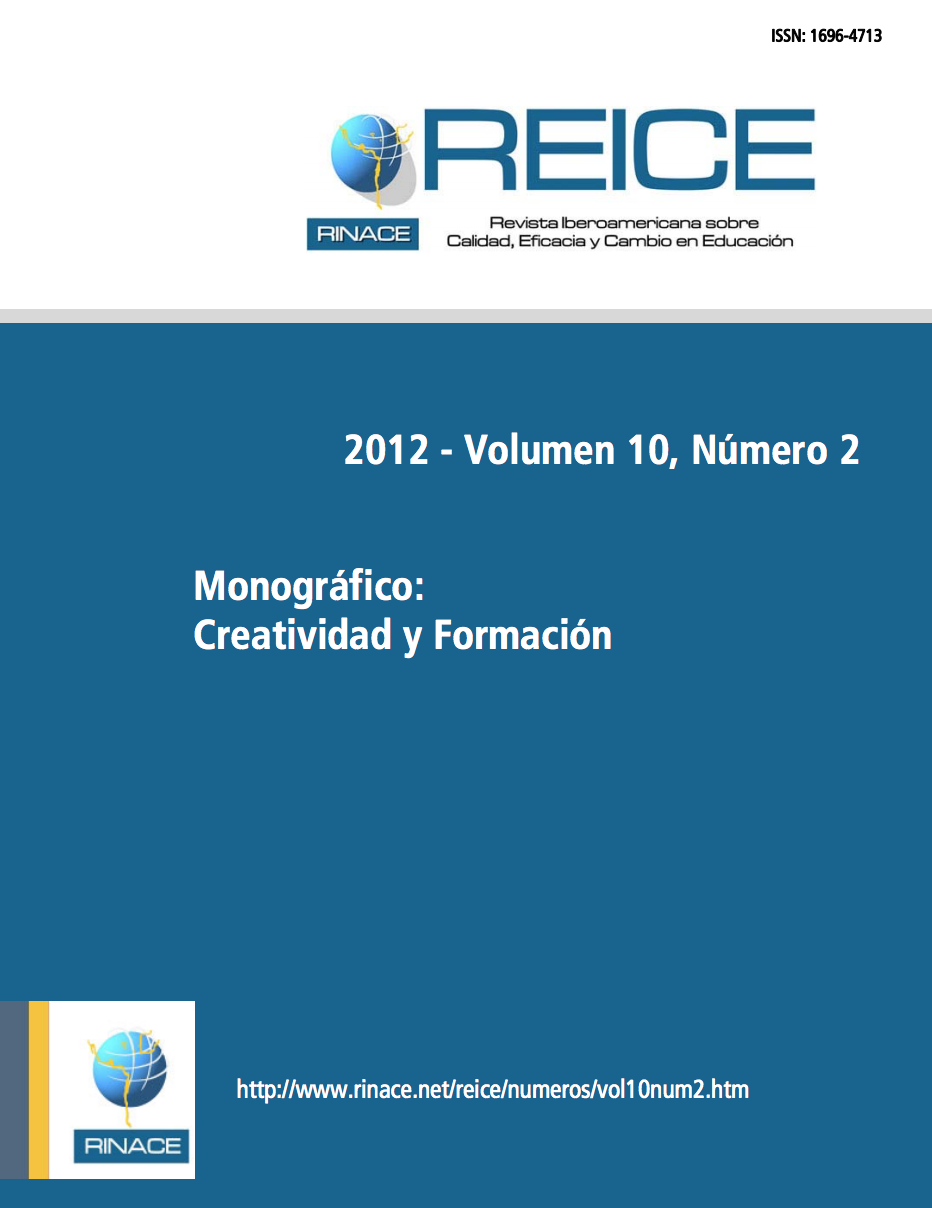Documented Experiences of an Open Educational Practice (OEP) Developed in a Higher Education Course
Keywords:
Quality, Effectiveness, Change, Improvement, Equity, InnovationCopyright (c) 2016 REICE. Revista Iberoamericana sobre Calidad, Eficacia y Cambio en Educación

This work is licensed under a Creative Commons Attribution-NonCommercial-NoDerivatives 4.0 International License.
Abstract
This research project was developed as part of the requirements of the Virtual Seminar for the training on the Open Educational Movement sponsored by the Open and Regional Latin-American Community for the Social and Educational Research. The main objective was to adopt Open Educational Resources (OER) in order to identify the possible benefits shown by the students after their adoption in their educational practices in a higher education course based online. The results present similarities among the benefit expressions of the students, increase of the student’s interests towards the topics of study and also it was perceive higher motivation.
Downloads
References
Burgos, J. V. (2010, octubre). Caso de estudio práctico "TEMOA": Un portal web de recursos educativos abiertos. Conferencia presentada en el Simposio Internacional de Computación en la Educación (SOMECE). Monterrey, México.
Business Link (2009). Customer relationship management. (02 de noviembre de 2011)
Creswell, J. W. (2007). Qualitative inquiry and research design: Choosing among five approaches. (2a. ed.).ThousandOaks, CA: Sage.
D’Antoni, S. (2008). Open educational resources: the way forward. Deliberations of an international community of interest. (27 de noviembre de 2011)
Elkhateeb, H.E. (2001). The effects of class level placement (honor vs. regular), the students' perceptions of their constructivist learning skills, and their use of technology, on student learning outcomes. Disertación doctoral no publicada. Universidad de Tennessee, Estados Unidos
Farber, R. (2009). Probing OER's Huge Potential. Scientific Computing, 26(1), 29.
Giroux, S. y Tremblay, G. (2004). Metodología de las ciencias humanas. Investigación en acción, México: Fondo de Cultura Económica.
Macomber, J. (s.f.). E-business Strategies. (02-noviembre-2011)
McCreary, F.A. (2001). Empirical evaluation of a technology-rich learning environment. Disertación doctoral no publicada. Instituto Politécnico de Virginia en Virginia, Estados Unidos
Minocha, S., Millard, N. y Dawson, L. (2003). Integrating customer relationship management strategies in (B2C) e-commerce environments. (02-noviembre-2011)
OPAL (2011). Beyond OER: Shifting Focus to Open Educational Practices. (02 de noviembre de 2011)
Spirer, J. (1980). The cases study method: Guidelines, practices, and applications for vocational education. Research and Development Series. 189.
Stake, R. (2007). Investigación con estudio de casos (4ª. Ed.). Madrid: Morata.
UNESCO (2002). Open Educational Resources. (27 de noviembre de 2011)
Yebuah, E.N. (2008). E-commerce and e-business. http://www.temoa.info/es/node/1717 (02-noviembre _2011)
Yehle, A.K. (2000). Technology use, reasons for technology use, and impacts of technology use: A case study of preservice student teachers in the area of emotional disturbance. Disertación doctoral, no publicada. Universidad de Wisconsin en Madison, Estados Unidos
Yin, R.K. (2002). Case Study Research: Design and Methods (3a. Ed.). Thousand Oaks: Sage.
